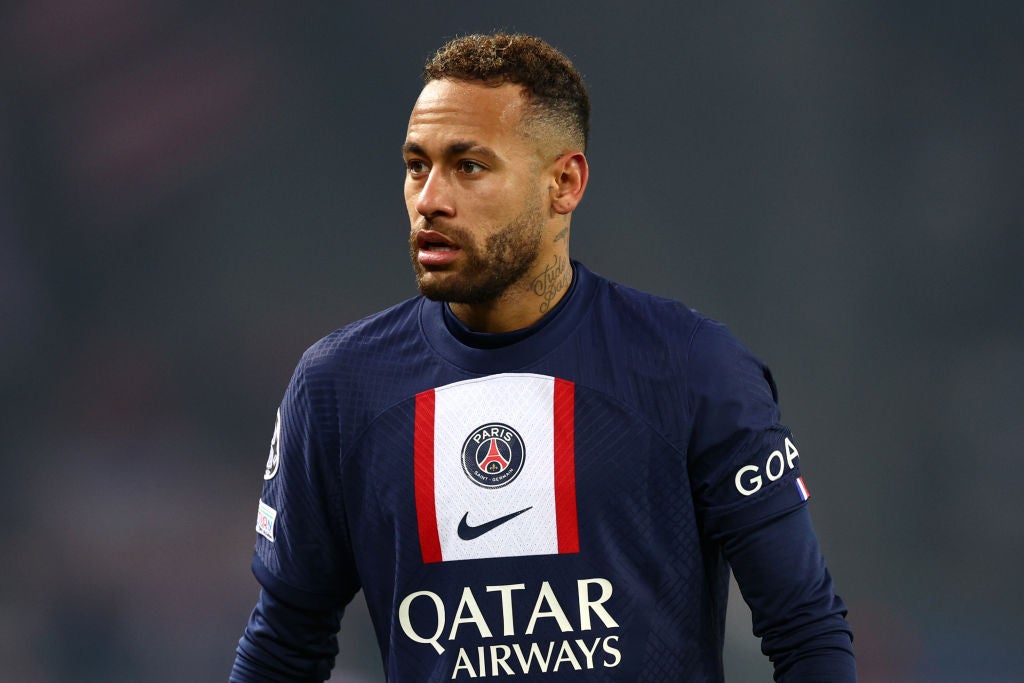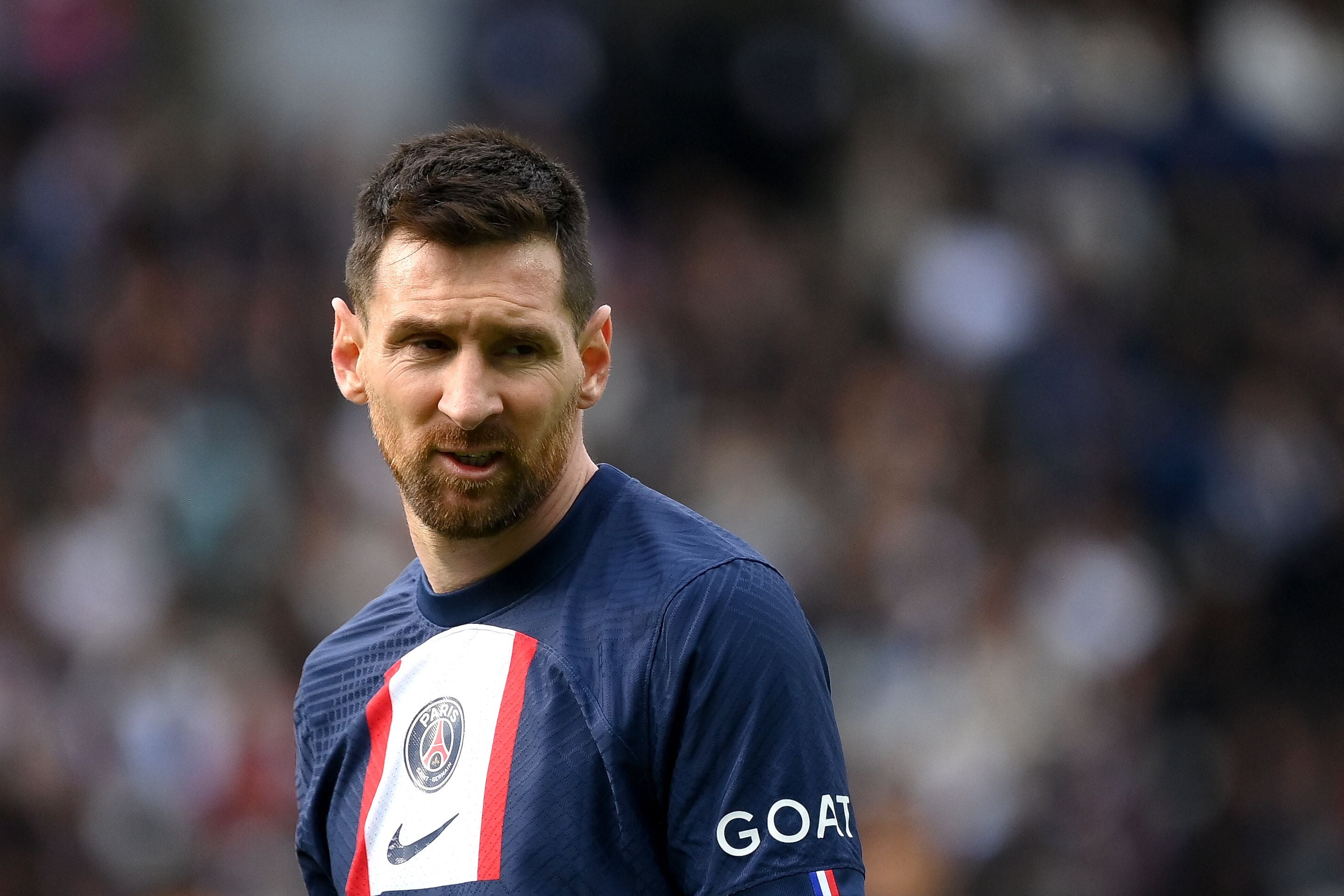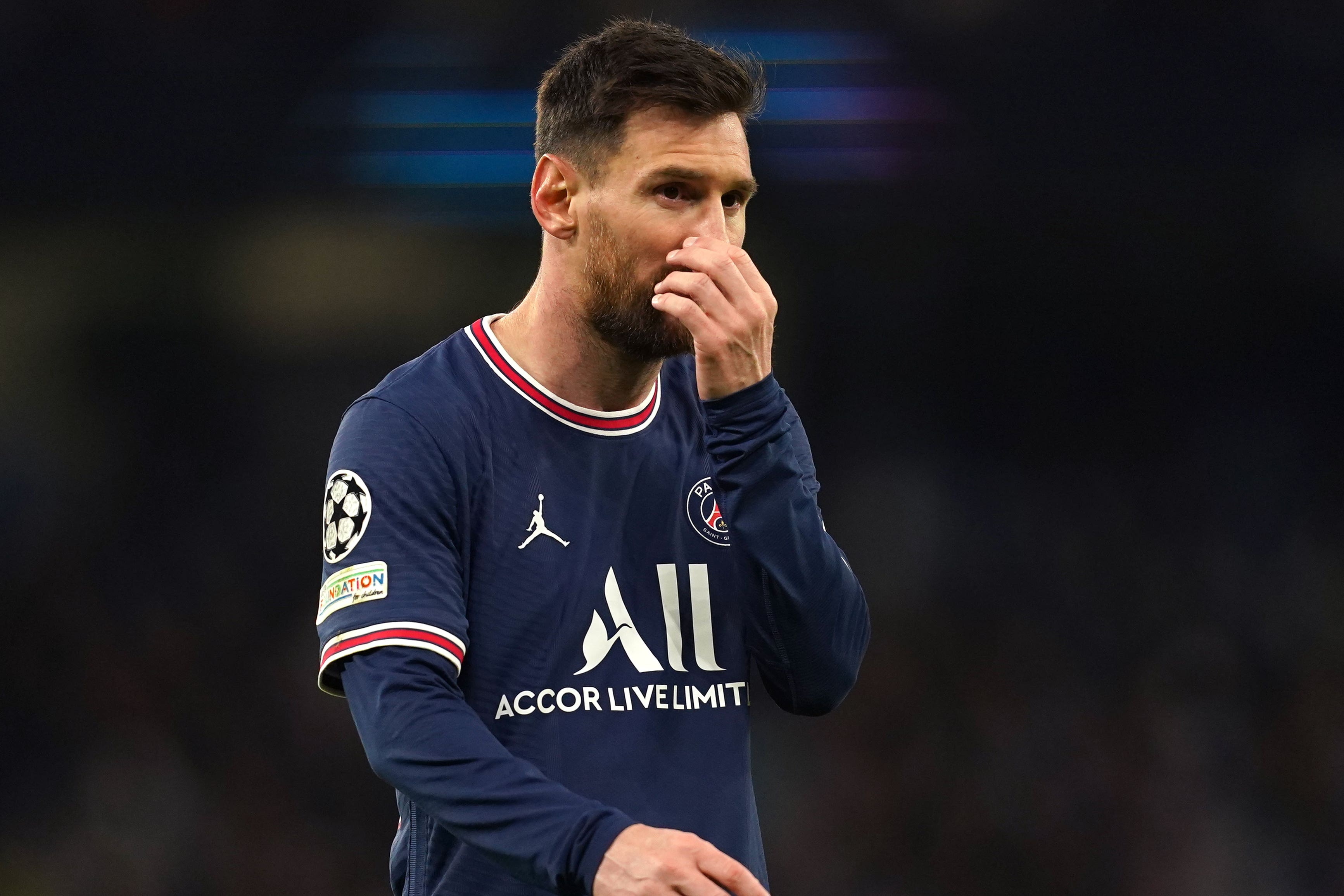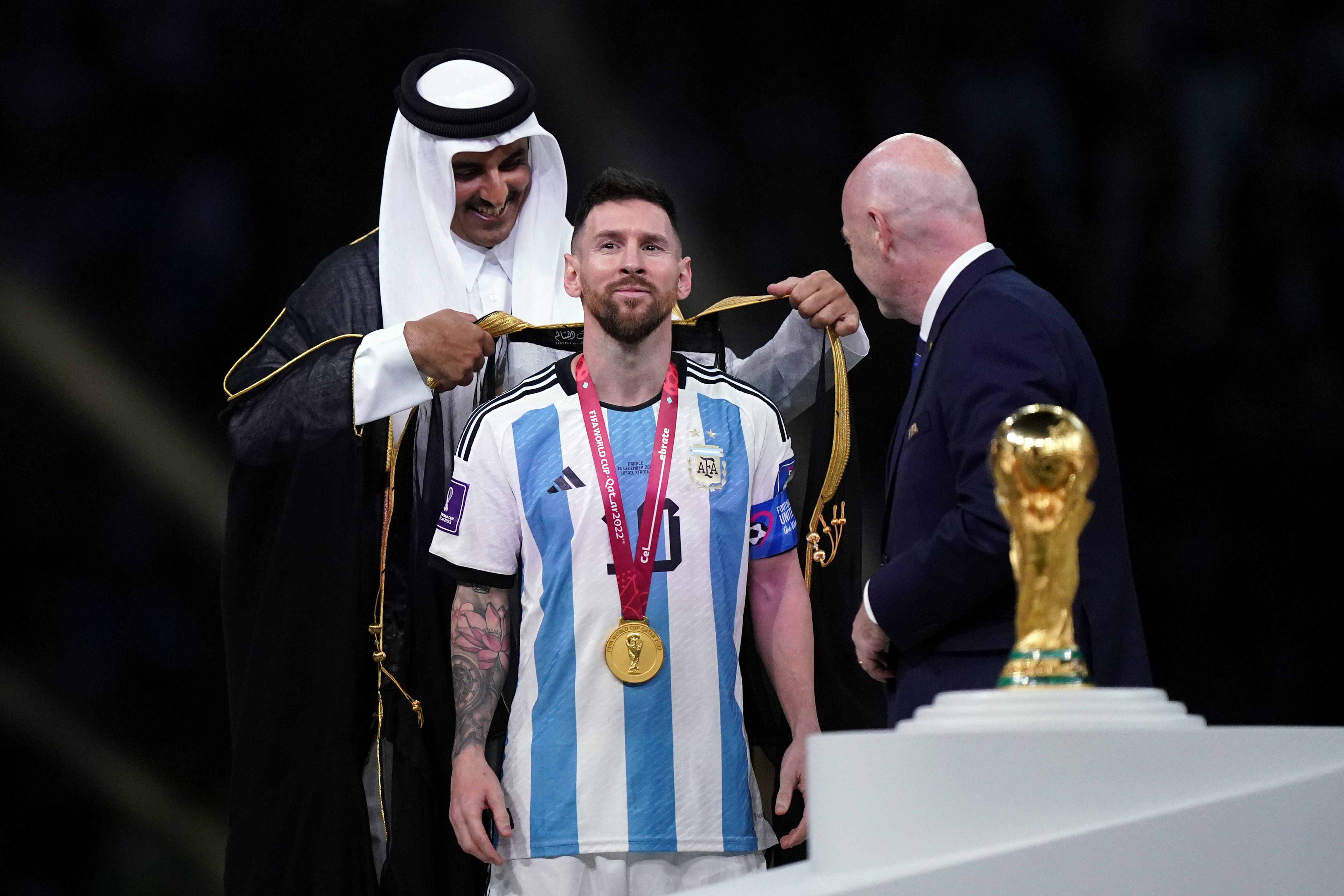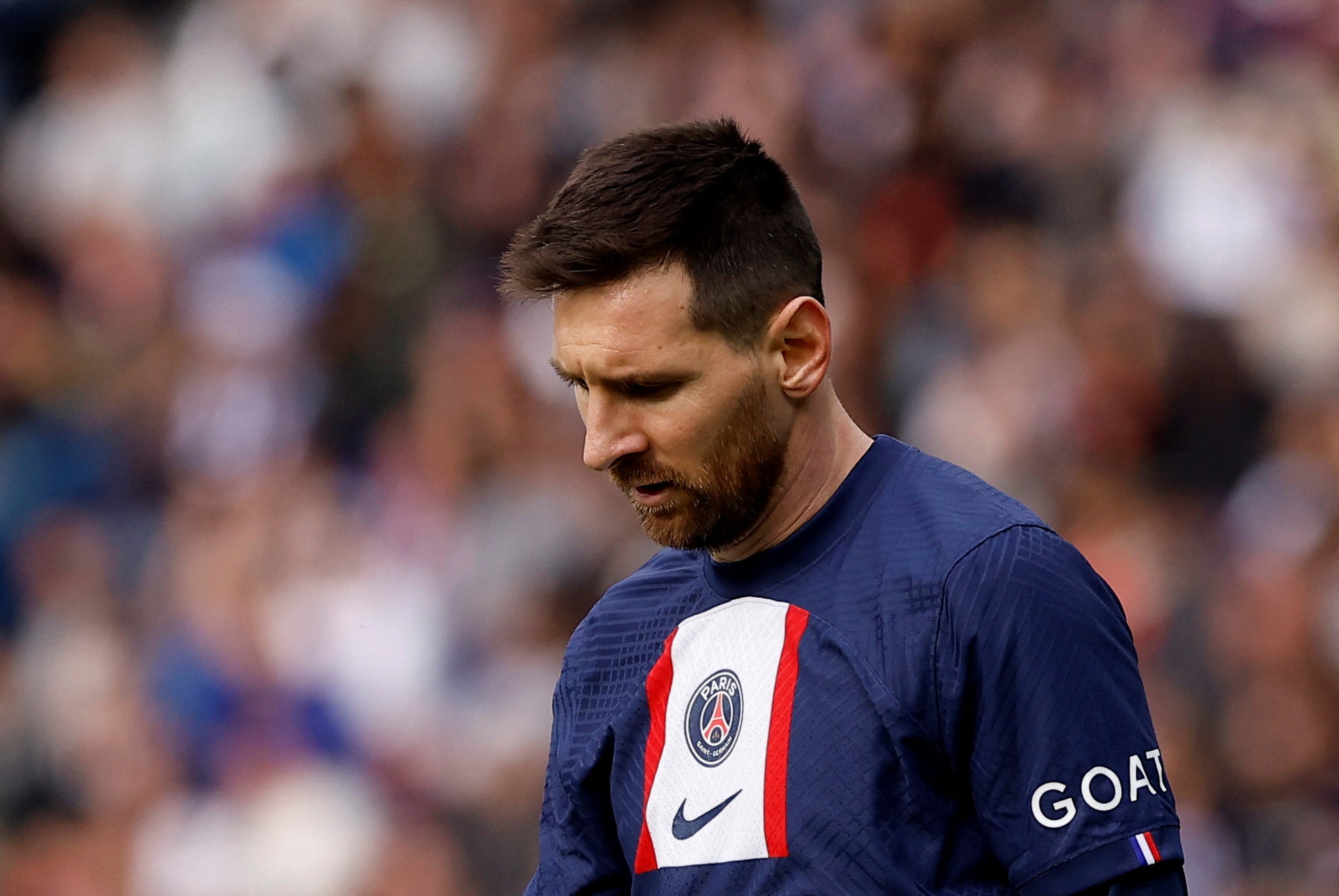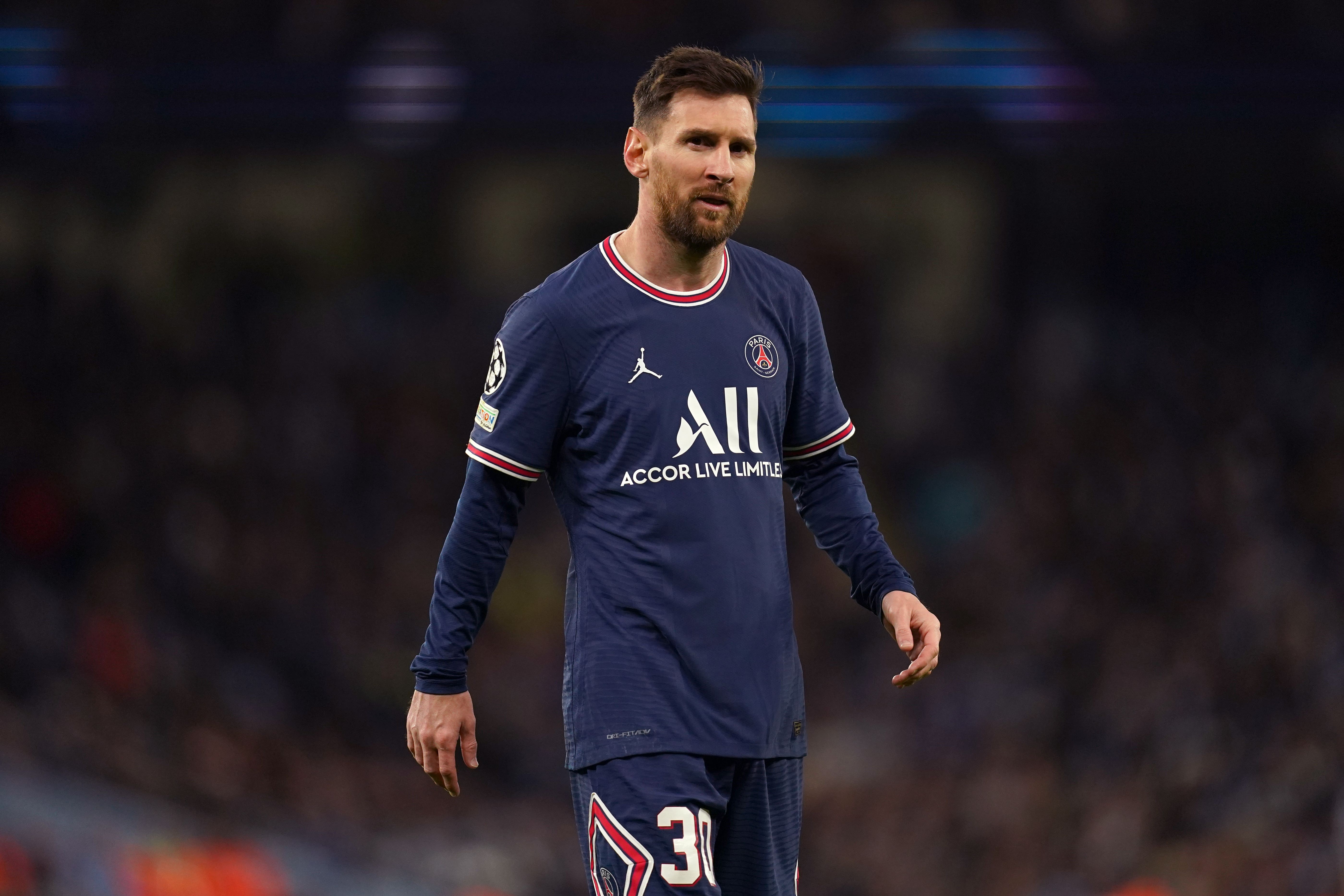The Lionel Messi tug-of-war: How Gulf oil states are fighting over football’s greatest player
It is stressed that this hardline decision was only taken because of the terms of the player’s deal and basic football respect to the club. The feeling was that Messi is paid an enormous amount and is supposed to be a leader in world sport, but – in the words of one figure with knowledge of the inner workings of PSG – he has “basically decided to do what he wants” after a significant home defeat when the supporters have been protesting him for weeks. It is also conspicuous that this stand comes as the French champions start undertaking a wider change of the model, that is pivoting towards youth and academy products. This has been relayed to the Messi camp as they discuss this very issue. There are similar questions over Neymar’s future.
Messi looks set to leave PSG this summer
Others can’t help but interpret it in terms of the geopolitical rivalry. PSG sources have insisted that the Emir – who is known to regularly watch training – had “zero” involvement, and that the decision would have been the same had Messi “gone to Scarborough”. There is still a potent symbolism to the Argentine getting suspended for working for Saudi Arabia, when he was supposed to be working for Qatar.
It perhaps points to how nobody, not even the most popular figure in football history, could straddle that divide indefinitely. It is still testament to Messi’s own power that he managed it for so long, mind. His signing represented the culmination of a grand plan in the first stage of Qatar’s major sportswashing project in Paris, only to become the key figure in the start of a Saudi plan.
So many of the strands of this came together in a World Cup that also brought his career to a crescendo. Saudi Arabia’s defeat of Argentina ironically sent that campaign into crisis, while serving as a rare moment of unity between the political rivals. The Emir was sensationally pictured holding up the Saudi flag in celebration, an image that would have been unthinkable amid the blockade of 2017. Messi meanwhile appeared in Saudi Tourism Authority adverts that ran on Qatar’s beIN Sports throughout the tournament.
That opening result may have actually served Argentina, though, as it forced the intensive focus that was necessary to win the World Cup. So it was that, no matter what happened at PSG, Qatar had extracted maximum value out of Messi. The greatest moment of the greatest player’s career will forever be associated with Doha, all symbolised by the Emir wrapping a bisht around the 35-year-old for the moment of glory.
Messi was wrapped in a bisht by the Emir of Qatar after winning the World Cup
Saudi Arabia want similar, in their own way. As reported by The Indpendent last month, the kingdom have made Messi a huge offer, as part of an extensive plan to have the Saudi Pro League as the final stage of the historic rivalry with Cristiano Ronaldo. The idea would be to create a new buzz around the competition as “the home of football glamour”, before a prospective 2030 World Cup. That might create even more political intrigue, given that Messi’s home country are seeking to form part of an emotionally resonant centenary World Cup in South America, 100 years after Uruguay held the first and Argentina reached the final.
There is then the political intrigue with his great rival. One reason that Ronaldo had accepted the Saudi offer was because of how his reported wages represented a new “victory”, as the best-paid player in the world but it is understood the offer to Messi greatly exceeds that. While a prospective club has not been decided, it is expected the Argentine would go to Al Hilal, the rivals of Ronaldo’s Al Nasr.
Figures close to Messi are insistent the talks are nowhere near so advanced. He would still like to win another Champions League.
This would only add to the legacy that has proved so valuable, and not just in football or financial terms. Human rights research group FairSquare lay this out.
“For years, Messi has acted as a paid face of Qatar, whether at Barcelona for Qatar Airways or as the face of Qatar Telecom, and the intention was clearly to elevate his role even further at PSG,” the body states. “His pivot to promoting Saudi Arabia has spoilt that model, and so it’s not surprising to see that this is ruffling feathers at PSG. Like his original transfer from Barcelona, this is about far more than happens on the pitch.”
Some in the industry have questioned the “greed” of Messi, and pointed to how this is money he doesn’t, especially when there are more romantic options like a return to Newell’s Old Boys. It is again stressed that nothing is yet decided. Messi has more to give in Europe. Others argue it is just players dealing with the reality of the game.
Recommended
FairSquare would similarly point to how this is bigger than any one player. “When you allow the top tier of the game to become controlled by states, it means clubs and players become political tools. This is a pretty striking portent of what’s coming down the line.”
It has already greatly influenced what’s next for Messi, even as his future remains unclear.
Source: Read Full Article
